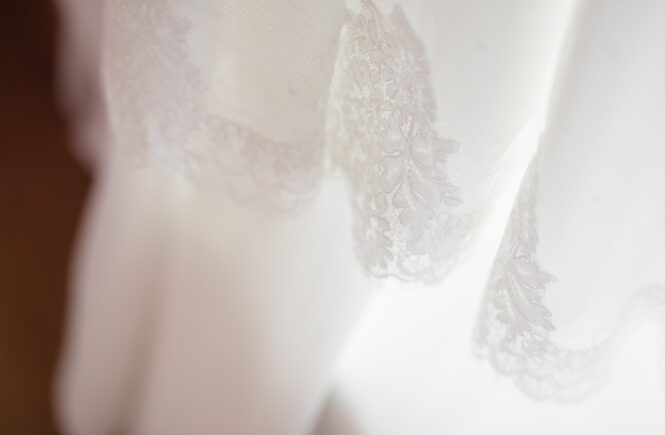Kathleen Agnes Kennedy, commonly known as “Kick” Kennedy, is primarily recognized as the free-spirited younger sister of President John F. Kennedy. Born in 1920, she is the fourth oldest out of the nine children raised by Joseph and Rose Kennedy.
In comparison to some of her political family members, not much has been written about Kick. Perhaps historians shy away from the subject because they are under the impression there is not much to discuss. Kick lived quite a short life, as did many of the Kennedys, and up until her society debut in 1938, the trajectory of her life did not differ much from that of her sisters and other well-off women in her era.
In many ways, Kick’s role in her family’s history has gone by relatively unnoticed despite the fact that she was noted as JFK’s favorite sibling. However, Kick lived a glamorous, rebellious, fascinating life with her fair share of love and loss, all accounted for in Kerri Maher’s debut novel, The Kennedy Debutante, published in 2018. Maher effortlessly constructs a gripping coming-of-age story based off mostly fact, minimal fiction, detailing Kick’s excursions as a young, recognized woman finding her footing as an individual in the midst of WWII.
The novel opens in 1938 as Kick prepares for her society debut at Buckingham Palace. Her older sister, Rosemary, also partakes in the event. Kick is 18 years old and fresh out of secondary school. Rosemary is nearly 20. Their father, Joseph Kennedy, has recently been appointed as United States Ambassador to the United Kingdom under President Franklin Roosevelt. Their presentation marks the kickoff of a string of extravagant parties and appearances with the upper echelon of London society. With her family’s reputation on the line, Kick’s mother forces her to study handmade flash cards of names and faces of prominent members of Britain’s upper class to avoid embarrassing herself, and consequently, the Kennedy name, at an event during debutante season.
Fortunately, Kick is a hit at every event throughout debutante season. She makes fast friends with other women in her caliber of society, her candids adorn all the newspapers, and she meets plenty of male suitors eager to impress the “American bird.” So much so, word makes it back to Boston that many eligible English bachelors have their eyes on Kick, prompting gentleman suitors from her hometown circle to travel (by boat) to London, intent on seeing her and possibly popping the question. On the off-season, Kick travels with her family to the French Riviera or back home to Hyannis Port, Massachusetts, with occasional side trips with Jack and his friends during his summer holiday from Harvard.
Despite Kick’s elaborate, privileged lifestyle, she carries several burdens with her in the midst of all the glitz and glamour. She’s fallen head over heels for Billy Cavendish, the future Duke of Devonshire, who is a devout Protestant. At home, her ever growing concerns for her brother Jack’s physical health, sister Eunice’s mental health, and the unpredictable, undiagnosed, irrational behavior of her sister Rosemary consume her thoughts. And of course, war is impending as tensions rise with the Nazis.
On a routine vacation to the Côte d’Azur, Kick and her family are summoned back to London abruptly with minimal explanation. During a brief pit stop on the return route, Kick sees French soldiers on an opposite train commuting into the warzone. It becomes clear to Kick that the Kennedys may need to pack their bags at the drop of a dime and return to America for safety. Kick’s father is eventually forced to resign from his position as Ambassador, and the family returns to America without a choice.
Over the next few years, Kick sets her sights on returning to England to be with Billy. Countless setbacks hinder her return, as Jack, Joe Jr., and Billy decide to serve. Transatlantic transportation via ship and aircraft is nearly impossible for civilians. Rumors circulate back to Washington D.C., where Kick currently resides, that Billy got engaged to an English socialite Kick knew from her debutante days. Luckily, word also follows that Billy ended the engagement. The possibilities between Kick and Billy seem endless yet ambushed, given the circumstances.
In 1943, Kick finesses her way back to England by joining the UK extension of the American Red Cross, despite signing a contract with the organization stating she was not joining to reunite with a lover. Surprised and delighted by Kick’s reappearance across the pond, Billy and Kick reconnect and discuss their future together, specifically what their family’s faith base would be if they were to get married. Both parties are unwilling to convert to the other’s faith, but are understanding of each other’s position.
After plenty of soul-searching, written correspondence with Father O’Flaherty (a priest friend from London), and a meeting with an Anglican monk, Kick agrees to marry Billy and allow their children to be raised Protestant while she remains Catholic. Less than a week later, Kick and Billy wed in a courthouse-style wedding, with Kick’s oldest brother Joe Jr. being the only member of the Kennedy clan in attendance.
Three months later. Joe Jr. is killed in a secret aviation mission over the English Channel. Three weeks later, Billy is killed by a German sniper in Belgium. Kick is left heartbroken and devastated by her sudden losses, but this is where The Kennedy Debutante concludes.
Like Joe and Billy, Kick also died young and unexpectedly. Roughly three years past the events which conclude the novel, Kick died in an airplane crash with her new lover (a man who was Protestant and married) when it plummeted from the sky in a storm over France. In the following decades, Jack would become President of the United States while the rest of her siblings (except Rosemary) opted for political public life in some shape or form.
Ultimately, I thought The Kennedy Debutante was splendid, but it was not a quick read. I’d read in previous reviews that the “debutante season” portion of the novel was the longest and hardest to digest. I found myself in agreement. Understandably, Maher had to stay true to the documented events and interactions in Kick’s life, even if it felt mundane for the reader. However, the love story between Kick and Billy, the brief lapses into Kick’s childhood shenanigans with her siblings, and the realistic recounts of Kick’s experiences in WWII made the novel captivating and worth completing. I’d never read a WWII-era novel heavily leant towards England from a female perspective before, and seeing the perspective through an American expat’s lens made the storyline quite alluring.
In addition, the author’s note offers explanations on several inconsistencies where imagination filled in the gaps between facts. For example, Father O’Flaherty, a Catholic priest Kick befriended in London, was a fictional character created to illustrate Kick’s dedication to her faith and her inner calling to serve. A couple of Kick’s recurring friends in London high society were fictional as well, but there’s no doubt that there were real individuals in Kick’s inner circle who these characters could have been based on. Maher’s ability to interweave fact and fiction worked flawlessly for The Kennedy Debutante, as I was stunned when I saw these fictional revelations come to light.
Furthermore, Maher illustrates Kick as a passionate, rebellious, complex individual who is far more than a forgotten sister of a former President who married into British Aristocracy. Kick was a forward-thinking, underrepresented member of an iconic American family who was willing to give up (almost) everything to be with her true love.
Maher’s next novel on my reading list is The Girl in White Gloves, which came out a mere two months ago. How fitting, considering the last novel I completed was Meet Me in Monaco by Hazel Gaynor and Heather Webb, which also discusses Grace Kelly. Quarantine has left me with more than enough time to read and write book reviews, so if you’ve any recommendations, feel free to comment below or fill out a contact form above. Happy reading!




